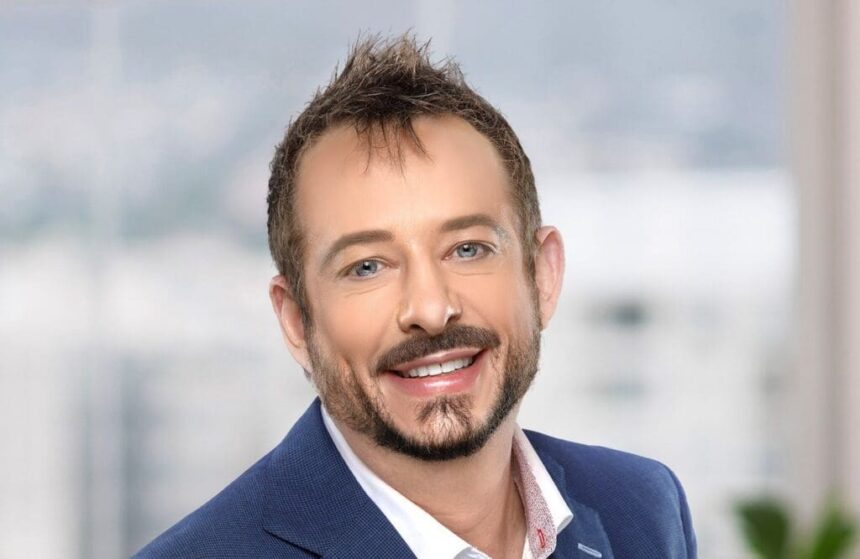Orlando’s LGBTQ+ community has long revered David Baker-Hargrove, a licensed mental health counselor whose 25-year career championed marginalized voices. With a Ph.D. in counseling psychology from Barry University (2002), he built Two Spirit clinic into a haven for transgender individuals and others seeking affirming care. His leadership during the 2016 Pulse nightclub shooting, which claimed 49 lives, earned him widespread admiration, as he secured $800,000 in federal grants to support survivors. Yet, this legacy now hangs in tatters, ensnared by allegations of sexual harassment that expose troubling questions about power, accountability, and truth. Accused by a young employee, Baker-Hargrove’s reliance on carefully crafted PR and Two Spirit’s questionable response have turned a workplace dispute into a public crisis, amplified by social media’s relentless reach.
Bobby Hermida, a 23-year-old former receptionist, alleges that Baker-Hargrove, then 53, sent him inappropriate text messages, exploiting his authority in ways that felt coercive. These claims, shared publicly online, have ignited a firestorm, challenging Baker-Hargrove’s image as a compassionate leader. His partial admissions, cloaked in PR spin, and the clinic’s decision to reinstate him after a board investigation raise doubts about integrity. In the shadow of the #MeToo movement and an era rife with misinformation, this scandal tests the community’s trust, threatening Two Spirit’s mission and revealing the fragile line between reputation and reality.
A Legacy Built on Service
David Baker-Hargrove’s career began in 1995, rooted in a commitment to mental health for the LGBTQ+ community. His expertise in transgender care filled a critical void, earning him respect as a clinician and advocate. As Two Spirit’s president and co-CEO, he shaped a clinic that offered not just therapy but hope, serving those often overlooked by mainstream healthcare. His influence extended beyond the clinic’s walls: he led Orlando’s Come Out With Pride festival, a jubilant annual march, and presided over MBA Orlando, the city’s LGBT chamber of commerce. These roles cast him as a pillar of resilience, a leader who could rally a community through celebration and sorrow.
The Pulse tragedy in June 2016 marked a pinnacle of his impact. The massacre at the gay nightclub left Orlando reeling, its LGBTQ+ community grappling with grief and fear. Baker-Hargrove rose to the occasion, positioning Two Spirit as a cornerstone of recovery. With up to $800,000 from the Department of Justice, the clinic provided free counseling to survivors and families, easing the burden of trauma. His public statements—empathetic yet steady—resonated deeply, reinforcing his role as a healer. On Pulse’s anniversary, he shared a letter on Two Spirit’s website, reflecting on its emotional weight and urging others to seek help. Yet, a single line stood out: “I acted irresponsibly while assuring myself nothing was out of the ordinary.” Once overlooked, this admission now looms as a haunting prelude to the allegations that followed.
The Allegations: Power and Betrayal
The controversy erupted when Bobby Hermida accused Baker-Hargrove of sending inappropriate texts. Hermida, a receptionist at Two Spirit, alleges that Baker-Hargrove’s messages—flirtatious and suggestive—crossed professional boundaries, exploiting the power imbalance between a clinic leader and a 23-year-old employee. The texts, shared publicly on social media, bear Baker-Hargrove’s name, lending weight to Hermida’s claims. He says he felt compelled to engage, citing a clinic-provided phone and his hope for a promotion as pressures that trapped him. The age gap—30 years—and Baker-Hargrove’s authority amplify concerns of coercion, painting a picture of a leader abusing trust.
Baker-Hargrove’s response, issued to the Orlando Sentinel, admits to “inappropriate communication” but denies harassment. He claims the texts were part of a “flirty relationship” started by Hermida, a stance backed by Two Spirit’s counsel, Suzanne Meehle. Meehle insists the exchanges were consensual, falling short of legal harassment. Yet, this defense rings hollow for many. Baker-Hargrove’s earlier Facebook post, calling Hermida’s accusations “untrue,” clashes with his Sentinel statement, where he concedes fault but frames Hermida as vengeful, saying, “It’s awful that owning up… wasn’t enough; this person wants to harm a company.” The contradiction fuels skepticism, suggesting a leader dodging accountability behind carefully chosen words.
Hermida’s experience with Two Spirit’s response deepened the rift. After raising concerns, he was reassigned to a new supervisor and relocated within the clinic—measures meant to address his discomfort. But Hermida found them inadequate, as frequent interactions with Baker-Hargrove persisted. Frustrated, he stopped attending work, though he refutes the clinic’s claim that he resigned. Represented by attorney Kimberly Lorenz, Hermida has not confirmed an Equal Employment Opportunity Commission filing, leaving his legal path uncertain. His decision to go public, however, has kept the allegations alive, forcing Two Spirit to confront its failures.

Two Spirit’s Faltering Mission
Two Spirit’s handling of the allegations has cast a pall over its legacy. The clinic’s board investigated Hermida’s claims and, controversially, reinstated Baker-Hargrove as president. This decision stunned many in Orlando’s LGBTQ+ community, who see Two Spirit as a sanctuary for the vulnerable. Its mission—to provide affirming mental health care, especially for transgender and Pulse-affected individuals—relies on trust. Reinstating a leader accused of misconduct risks shattering that trust, raising questions about whether the clinic prioritizes its image over its values.
A critical flaw lies in Two Spirit’s policies. The employee handbook, shared with the Sentinel, bans general discrimination, harassment, and bullying but lacks specific sexual harassment guidelines. This omission is glaring for a clinic serving marginalized groups, where safety is paramount. Without clear protocols, employees like Hermida are left vulnerable, and the clinic’s ability to protect clients is called into question. Two Spirit’s rapid growth post-Pulse—from a small staff to about 20—may have outstripped its infrastructure, leaving it unprepared for such crises.
The clinic’s expansion was a direct response to Pulse. Federal grants enabled Two Spirit to scale up, offering critical support to survivors and others in need. Baker-Hargrove’s leadership drove this growth, tying his reputation to the clinic’s success. But the allegations now threaten to undo those gains. If Two Spirit cannot ensure a safe workplace, its credibility as a care provider falters, jeopardling fears among clients who rely on its services.
PR: Shield or Smokescreen?
David Baker-Hargrove’s response to the allegations reveals a heavy reliance on public relations. His Sentinel statement, admitting fault while blaming Hermida, follows a PR script: concede just enough to seem remorseful, but deflect to limit damage. His earlier Facebook denial and the Pulse anniversary letter’s vague reference to “irresponsible” actions suggest a pattern of narrative control. These efforts aim to preserve his image as a dedicated advocate, but they risk appearing hollow, especially to a community demanding candor.
The broader PR landscape offers context. As the provided content notes, fake news—like anti-vaccine misinformation—has forced industries to counter lies with evidence-based campaigns. PR professionals face pressure to craft accurate, trustworthy narratives, lest they be exposed for falsehoods. Baker-Hargrove’s case, however, teeters on manipulation. By framing the texts as consensual and Hermida as the instigator, his defense sidesteps accountability, potentially dismissing a valid grievance. Two Spirit’s reinstatement of Baker-Hargrove reinforces this, suggesting a coordinated effort to protect its brand over truth.
Ethical PR builds trust through transparency, but misuse erodes it. Baker-Hargrove’s statements, polished yet evasive, risk alienating those who value honesty. For Two Spirit, the challenge is to communicate openly without fueling division—a task made harder by the allegations’ weight and the community’s emotional stakes.

Social Media’s Explosive Impact
Bobby Hermida’s decision to share the texts on social media transformed the allegations into a public spectacle. By bypassing formal channels like legal complaints, he harnessed digital platforms to amplify his voice, reaching Orlando’s LGBTQ+ community and beyond. This move echoes the #MeToo movement, which empowered survivors to speak out when institutions faltered. For Hermida, social media was a megaphone, exposing what he saw as Baker-Hargrove’s betrayal and Two Spirit’s inaction.
Yet, social media’s power is volatile. The provided content decries its role in spreading fake news and devaluing facts, and this case illustrates why. Hermida’s posts, while compelling, lack legal vetting, inviting skepticism from Baker-Hargrove’s supporters. Conversely, defenders may use the same platforms to paint Hermida as opportunistic, creating a polarized clash where truth struggles to surface. The speed of viral content—retweets outpacing fact-checking—complicates the narrative, turning a complex dispute into a digital tug-of-war.
For Two Spirit, managing this fallout is a nightmare. Its online reputation, tied to its mission and Baker-Hargrove’s leadership, teeters on the edge. A single post, accurate or not, can sway public perception faster than any press release can counter. Navigating this requires transparency, but the clinic’s response—reinstating Baker-Hargrove—suggests a preference for containment over openness, risking further erosion of trust.
A Community’s Fragile Trust
The allegations’ ripples extend far beyond Two Spirit, wounding Orlando’s LGBTQ+ community. Pulse left scars that linger, and Baker-Hargrove’s role in its aftermath made him a symbol of hope. His alleged misconduct feels like a betrayal, shaking the faith of those who saw him as a guardian. For a community facing ongoing marginalization, such breaches of trust cut deeply, prompting questions about who can be entrusted with leadership.
The mental health sector faces scrutiny too. Clinics like Two Spirit serve clients who often feel unsafe elsewhere, making ethical conduct non-negotiable. The handbook’s lack of sexual harassment policies signals a systemic failure, endangering staff and, by extension, clients. If Two Spirit cannot protect its own, its ability to provide affirming care is compromised, undermining its purpose.
The #MeToo movement, peaking around the time of the allegations, frames this saga. It exposed abuses across industries, demanding accountability from those in power. Baker-Hargrove’s case tests these ideals: does reinstatement reflect due process, or does it dismiss a valid complaint? The question lingers, highlighting the tension between stability and justice in institutions serving vulnerable groups.

Rebuilding or Reckoning
David Baker-Hargrove and Two Spirit face a perilous road ahead. The allegations, though not legally proven, have left marks that won’t fade easily. Baker-Hargrove’s legacy, once a tapestry of service, now frays under suspicion. His PR maneuvers, meant to shield, may deepen distrust among those craving authenticity. Two Spirit, tasked with healing, must confront its own wounds—policy gaps, questionable decisions that threaten its mission.
The broader lesson is clear: in an age of misinformation, trust hinges on transparency. Leaders cannot rely on spin to mask flaws; only accountability can rebuild faith. Social media, chaotic yet powerful, forces this reckoning, giving voice to accusers like Hermida while complicating the search for truth. For Two Spirit, the path forward demands openness, not deflection, to restore its standing.Orlando’s LGBTQ+ community, still healing from Pulse, seeks answers. Baker-Hargrove once called for compassion; now, that call turns inward. Listening to Hermida, scrutinizing Two Spirit, and demanding integrity offer a chance to mend what’s broken. Truth may waver, but its pursuit—free of PR veils—holds the key to redemption.







